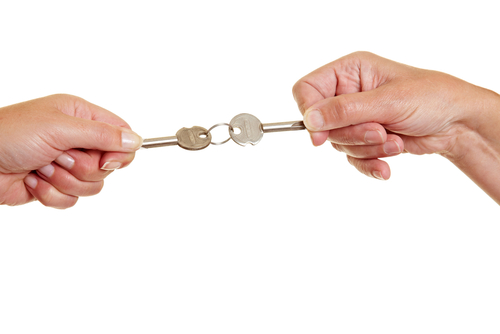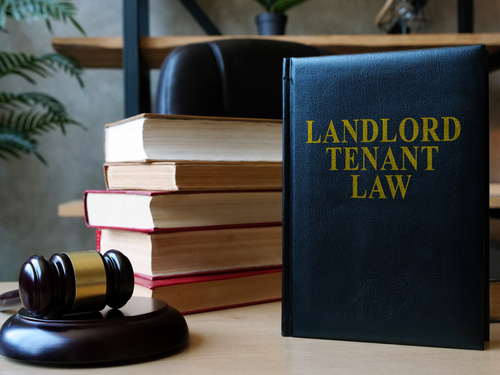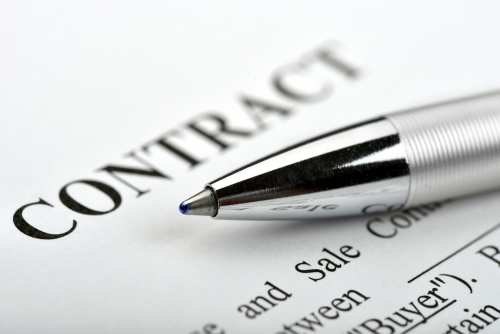Understanding how to professionally and calmly handle landlord-tenant conflicts is an essential part of the job. Although most people avoid confrontation, it may be your job as a landlord to settle an uncomfortable situation. So, let’s go over some ways to resolve landlord-tenant disputes if you are a property owner.

What Causes Landlord-Tenant Disputes?
Many different factors and situations can lead to landlord-tenant disputes. As you can imagine, property owners and tenants don’t always see eye-to-eye. So, what causes landlord-tenant arguments anyway?

Conflicts between tenants and landlords most commonly arise from lease misunderstandings or differences in how each party interprets the lease. For example, if the lease states that pets are allowed but doesn’t specify how many or what kind, it can lead to a considerable disagreement between landlords and tenants. Therefore, as a landlord, it’s crucial to be as specific as possible while listing rules and responsibilities in your lease.
In this situation, if you don’t want to deal with pet damages in your rental home, place limits on how many pets are allowed, what kind of pets are allowed, and what breeds are allowed. Then, it’s up to the tenant to comply with the rules.
Now, let’s go over a few other related reasons for landlord-tenant disputes.
- Security Deposit Misunderstandings
- Damages to the Property
- Tenants Breaking the Lease Early
Security Deposit Misunderstandings
Misunderstandings with a tenant’s security deposit are prevalent. Tenants expect to receive their full deposit back after moving out of the unit most of the time. However, landlords may decide to withhold the deposit due to damages to the property.
If there are damages within the unit, landlords should send their tenants an itemized list of issues and how much they will cost to repair. Most times, landlords will take this cost directly from the tenant’s security deposit. First, however, they must let the tenant know why they are withholding their money.
Damages to the Property
When constructing your lease agreement, be sure to include what counts as normal wear and tear vs. property damage caused by the tenant. It helps to create a list of daily and seasonal maintenance responsibilities for tenants. For example, some regular maintenance may include:
- Keep the unit clean and sanitary at all times
- Take out trash or other waste regularly
- Keep common areas free of clutter or safety hazards
Some seasonal maintenance may consist of:
- Keeping pathways and driveways shoveled during winter months
- Raking leaves during the fall
- Mowing the lawn regularly
If your tenant fails to keep up with these simple maintenance requests, it could cause damage or become a liability to your property, which in turn, may cause an argument.
Breaking the Lease Early
Another extremely common disagreement is when a tenant breaks the lease before it expires. This causes many issues for landlords, such as finding new tenants and taking care of bills in the empty unit.
Most tenants don’t realize the consequences of leaving a lease early, which may include withholding their entire security deposit to cover the costs of replacing them.
Arguments can emerge between landlords and tenants for many reasons. However, part of being a successful landlord is resolving conflict professionally. So, let’s look at ways to avoid conflict or resolve a disagreement correctly.
How to Avoid Conflict with Tenants
Sometimes, conflict within a rental unit is inevitable. However, landlords should avoid tension and disagreements with tenants as often as possible. So, let’s go over some ways landlords can prevent conflict with tenants.
The key to resolving or at least minimizing conflict is good communication. Start your landlord-tenant relationship with excellent communication, and begin with a tenant screening. During a tenant screening, you can meet the individual and get a feel for what kind of tenant they will be.
Similarly, you can thoroughly go over the lease during a tenant screening and ensure your tenant does not have any questions or concerns. If they do, address any issues right away to avoid confrontation later on. Now, let’s go over some other ways to decrease landlord-tenant disputes within your rental property.
- Fill Your Rental Unit on Your Terms
- Thoroughly Review the Lease Agreement
- Take Photo Evidence
- Keep All Documents Close
Fill Your Rental Unit on Your Terms
Most landlords will likely run into a situation where they are low on cash and need to fill a property. That said, it can be hard to watch your property sit empty without anyone occupying it. However, it’s essential to fill your rental unit on your terms.
Marketing your property well can allow more tenants to find it and become interested in living there. Then, once you have a steady flow of interested tenants, you can decide who you would like to rent to. Keep in mind that all landlords must follow all Fair Housing laws.
Thoroughly Review the Lease Agreement
Although it’s a given, landlords should make themselves fully aware of what’s written in the lease agreement. Poorly-worded leases or unclear rules and responsibilities can quickly spark conflict between landlords and tenants.
State your expectations clearly and review the lease before the tenant moves in to avoid lease misunderstandings. If there is a shared awareness of the entire lease agreement, disputes are less likely to happen in the future.
Take Photo Evidence
A straightforward way to avoid conflict is to have photo evidence of everything. For example, landlords should take photos of the property before the tenant moves in to know if the tenant damaged the unit while it was occupied.
Similarly, tenants should take photos of maintenance issues or necessary repairs as they pop up in the rental. That said, during the time of occupancy, landlords and tenants should both document damages and repairs. This way, landlords can determine how much damage a tenant caused to their rental unit.
Keep all Documents Close

While photos are a great way to report issues in your rental, keeping all of your essential documents handy is one way to avoid conflict. Both landlords and tenants should keep their lease agreement handy and any other necessary paperwork for the rental.
If you have documentation of everything, it’s hard to find a reasonable argument. Luckily, if you don’t already have a property management solution, Bay Property Management Group can keep all your essential records in one place.
How to Resolve a Tenant Disagreement Properly
If you encounter a conflict or misunderstanding with one of your tenants, it could end in one of two ways—good or bad. That said, landlords should do everything they can to resolve an argument civilly. If not, your rental business may be at stake.
As stated above, the best way to resolve conflict is by communicating effectively. Keeping an honest and open line of communication with tenants can help them feel more comfortable reporting issues. However, if you’ve never met your tenants or spoken with them directly, significant problems could arise without you knowing.
That said, if you happen to get into an argument with a tenant, it’s important to stay calm. Although it can be difficult, getting upset with one of your occupants could lead to even more significant issues. So, staying cordial with tenants during any interaction is your best bet to a successful landlord-tenant relationship.

Want to Build a Quality Landlord-Tenant Relationship?
Of all the ways to be a successful landlord, building a quality relationship with your tenants is one of the most important. Luckily, you can count on your local property management team to help you develop the relationship you want with your tenants.
Bay Property Management Group‘s qualified professionals are prepared and proven to help you successfully manage your rental business. So, if you need help keeping up with tenant communication, financial reports, or just the day-to-day tasks of your rental property, contact us today. We offer property management services in Baltimore, Philadelphia, Northern Virginia, Washington DC, and surrounding counties.

